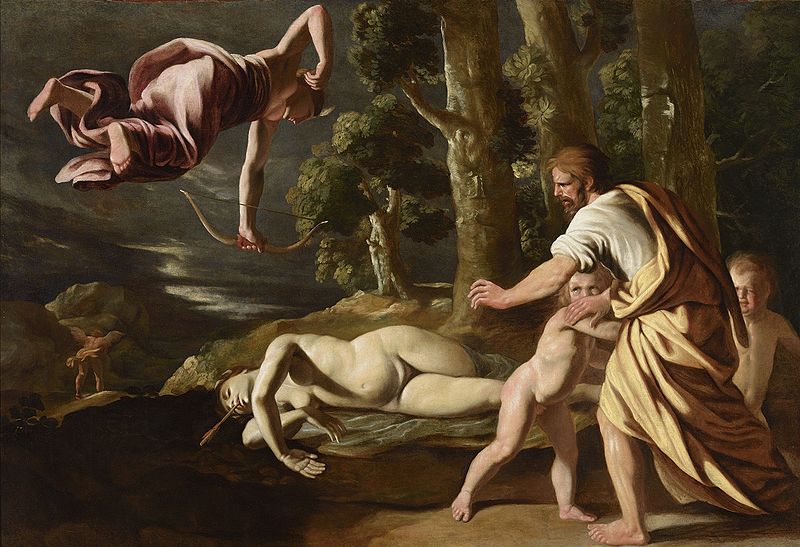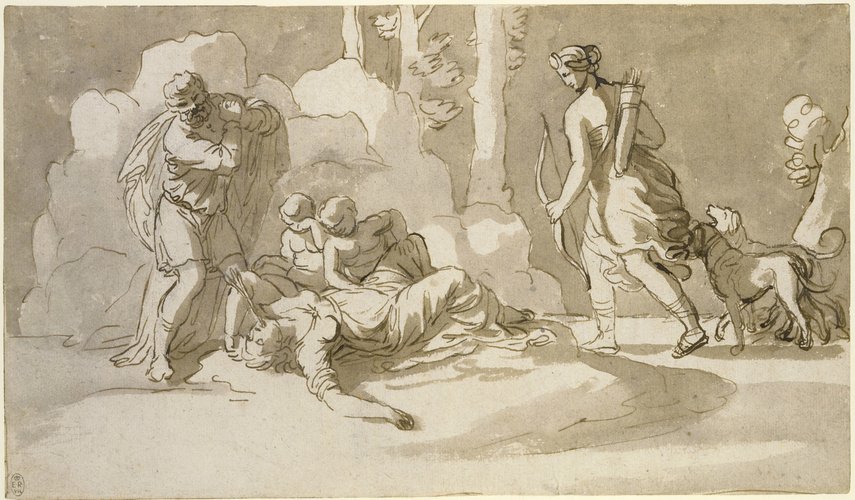CHIONE IN GREEK MYTHOLOGY
Chione was a mortal princess who appeared in the tales of Greek mythology. Chione would be known for her great beauty, but alongside her beauty came an inflated sense of her own worth, compared to the gods, hubris which bring about the death of Chione.
Chione Daughter of Daedalion
Chione was the daughter of Daedalion, who himself was the son of Eosphorus, the Morning Star. Daedalion was regarded as a warmongering king, but he was immensely proud of his daughter.
Suitors of ChioneChione would grow up to become a beautiful young woman, who amongst mortal men had a thousand worthy suitors.
It was though not just mortals who were enamoured with the beauty of Chione, for news of her good looks reached Hermes and Apollo. Apollo would decide to wait until nightfall to have his way with Chione, but Hermes was impatient. |
|
Hermes came to Chione and touching her face with his wand, Hermes placed Chione into a deep-sleep, and the god had his way with the daughter of Daedalion.
Apollo would subsequently visit Chione that night, and disguising himself as an old woman, also slept with Chione.
Chione would subsequently give birth to two semi-divine sons, Autolycus, son of Hermes, and Philammon, son of Apollo.
Apollo would subsequently visit Chione that night, and disguising himself as an old woman, also slept with Chione.
Chione would subsequently give birth to two semi-divine sons, Autolycus, son of Hermes, and Philammon, son of Apollo.
The Death of Chione
|
Chione recognised that it was her beauty that had drawn Hermes and Apollo to her, and she now boasted that her beauty surpassed that of goddesses, and she would name Artemis as one goddess whom she was more beautiful than.
Artemis would hear of this boast, and no god or goddess would let such a slight go unpunished; and so Artemis took up her bow, and the goddess shot an arrow through the tongue of Chione so that she could boast no more. |
|
This arrow would kill Chione through a loss of blood, and so the body of Daedalion’s daughter was placed upon a funeral pyre so that she could be cremated.
The Death of Daedalion
The death of Chione caused Daedalion to be so grief-stricken that he sought to commit suicide, and four times he tried to jump into the funeral pyre, but each time he was restrained.
Daedalion would break free from those who restrained him, and the father of Chione decided to throw himself from Mount Parnassus instead. No one could stop Daedalion this time, but still Daedalion did not die, for Apollo took pity upon the father of Chione, and transformed him into a hawk before he hit the ground.
Daedalion would break free from those who restrained him, and the father of Chione decided to throw himself from Mount Parnassus instead. No one could stop Daedalion this time, but still Daedalion did not die, for Apollo took pity upon the father of Chione, and transformed him into a hawk before he hit the ground.
|
|
Colin Quartermain - Chione - 21st November 2019

